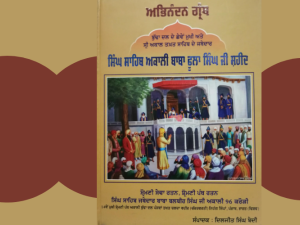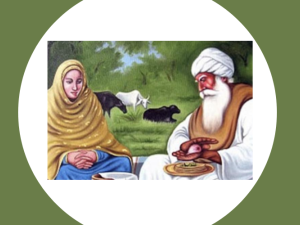In contemporary society, the significance of human rights is paramount, encompassing every facet contributing to human development. Theoretical foundations emphasize fundamental rights like the freedom of life, human dignity, and personal integrity. Economic, social, and political rights are integral components, collectively facilitating a dignified life marked by freedom. Notably, the Universal Declaration of Human Rights, established by the United Nations in 1948, serves as a global framework. However, the roots of advocating for human rights trace back centuries, notably in Sikhism, where each Guru from Guru Nanak Dev Ji to Guru Gobind Singh Ji addressed issues of humanity, cruelty, and social equality.
Guru Nanak Dev Ji challenged the caste system, advocating for social equality. The introduction of Langar Pratha, a practice continued by subsequent Gurus, exemplified a commitment to a society devoid of caste, class, or gender discrimination. Guru Amar Das Ji institutionalized langar, emphasizing equality by requiring all pilgrims, including Mughal Emperor Akbar, to sit in queues and partake in the communal meal. Guru Nanak Dev Ji laid the foundation for religious education and emphasized the equality of all individuals. Guru Angad Dev Ji and Guru Amar Das Ji furthered these principles, establishing langar as a symbol of inclusivity. Guru Arjan Dev Ji's sacrifice for human rights, demonstrated through the construction of Harmandir Sahib, symbolized a sanctuary open to people of all classes without discrimination.
Guru Gobind Singh Ji's contributions were pivotal in abolishing inequality. Through the establishment of the Khalsa Panth and the initiation ceremony “Khande di Pahul” with a common bowl, he dismantled caste divisions. This commitment to equality is reflected in the Guru's writings, emphasizing the protection of human rights without distinctions. The Gurus' teachings not only anticipated contemporary human rights principles but also set a historical precedent. Their emphasis on social equality, elimination of discriminatory practices, and promotion of human rights serves as enduring lessons. In modern times, organizations advocating for human rights can find inspiration in the fundamental principles embedded in Sikhism, as expressed in Gurbani, providing a profound basis for understanding and championing human rights.






